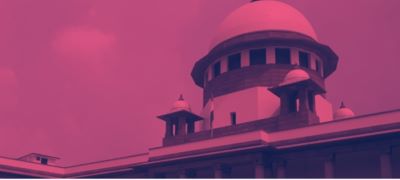Context
The Supreme Court of India has recently admonished judges for making "casual observations" that expose communal bias or misogyny. As judicial proceedings are now live-streamed in various courts, the Court emphasized the importance of maintaining integrity and responsibility in public discourse. The Chief Justice of India (CJI) D.Y. Chandrachud stressed that the essence of judging lies in fairness, urging judges to adhere to constitutional values rather than personal prejudices.
Overview
- This scrutiny arose after the Karnataka High Court Judge V. Srishananda made sexist remarks toward a woman lawyer during two separate proceedings. The Supreme Court took Suo motu cognizance of these incidents, highlighting that off-the-cuff comments could negatively impact the judicial institution's reputation. Previously, the same judge referred to a Muslim-majority area in Bengaluru as "Pakistan," prompting the Court to assert that such statements are fundamentally inappropriate and unconstitutional.
- In another case, Pune District Court's Notice to Women Lawyers: In October 2022, the Pune District Court issued a notice requesting women lawyers to avoid fixing their hair in the open courtroom, stating that this behavior was disrupting court proceedings.
Observations
While the judge issued a contrite apology, the Supreme Court concluded the matter with several critical observations. Attorney General R. Venkataramani and Solicitor General Tushar Mehta suggested that the Court handle such issues privately to avoid misrepresentation on social media.
- In response, CJI Chandrachud aptly remarked, "The answer to sunlight is more sunlight. The answer is not to close our doors and shut out everything."
- This incident is part of a broader concern regarding gender sensitivity within the judiciary. Last month, the Supreme Court cautioned a judge of the Punjab and Haryana High Court to refrain from making "random, unwarranted" remarks.
- In 2023, the Court also published a handbook aimed at combating gender stereotypes in the legal community, providing a glossary of terms that perpetuate gender bias and suggesting more equitable alternatives.
Causes of judicial biased remarks are…
- Cultural and Social Influences: Judges may be shaped by their personal backgrounds, societal norms, and existing stereotypes, which can lead to biases related to gender, religion, or caste.
- Insufficient Training: A lack of adequate training in gender sensitivity and diversity issues can result in unintentional biases in judicial decisions.
- Personal Beliefs: The personal ideologies and convictions of judges can affect their interpretation of the law, compromising their impartiality.
- Media Influence: Coverage of prominent cases can influence public perception and potentially affect judicial opinions.
- External Pressures: Pressure from political figures or influential individuals can lead to conflicts of interest, resulting in biased judgments.
- Limited Representation: A homogenous judiciary may lead to a narrow viewpoint, overlooking the experiences of marginalized communities.
- Precedent and Tradition: Over-reliance on established precedents without critical assessment can sustain biases that are rooted in previous rulings.
Measures to minimize judicial biasness
- Comprehensive Training: Establish regular training programs focusing on gender sensitivity, diversity, and unconscious bias for judges and court personnel.
- Diversity in the Judiciary: Promote a diverse judiciary to capture a wider range of perspectives that reflect the society it serves.
- Strong Accountability Mechanisms: Create clear protocols for reporting and addressing instances of bias or misconduct among judges.
- Public Awareness Initiatives: Enhance public understanding of judicial processes and rights to foster accountability and transparency.
- Independent Review Committees: Set up independent committees to investigate cases where bias may be present, ensuring a system of checks and balances.
- Strengthened Code of Conduct: Develop and enforce a rigorous code of conduct that directly addresses bias and encourages impartiality.
- Judicial Performance Assessments: Conduct regular evaluations of judges’ performance, emphasizing their commitment to fairness and impartiality.
- Promoting Collegiality: Create an environment where judges can openly discuss and reflect on their decisions to reduce individual biases.
- Community Involvement: Engage community representatives in judicial training and discussions to deepen the understanding of diverse social issues.
- Inclusive Legal Education: Ensure that legal education includes training on bias, ethics, and the critical importance of impartiality within the judiciary.
Conclusion
It is crucial for judicial officials to be gender-sensitive and aware of the biases that can arise in legal proceedings. Stereotyping individuals based on gender or religion perpetuates harmful inequalities, undermining the very principles of justice. The judicial ecosystem must operate free from any form of bias, ensuring that all individuals are treated with dignity and fairness. As carriers of justice, it is imperative for judges and legal professionals to remain vigilant and committed to these ideals.
|
Probable questions for upsc mains examination 1. Examine the role of media coverage in shaping public perception of judicial biases and its influence on the legal framework. 250 words (15 marks) 2. Analyze how judicial biases manifest in court proceedings and the impact they have on marginalized communities. 150 words (10 marks) |
Source: The Hindu








